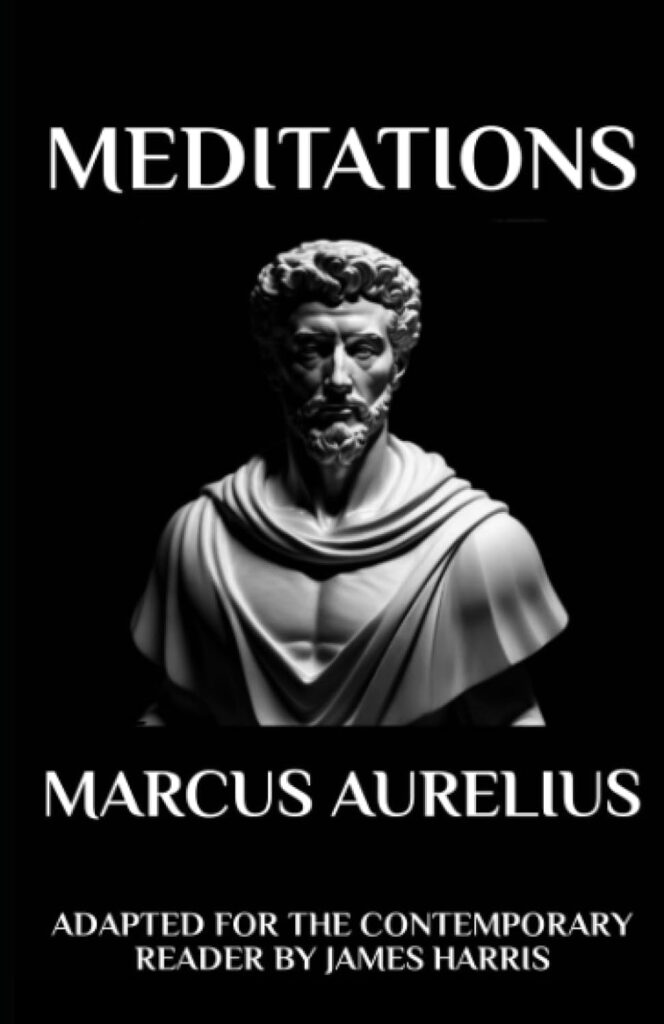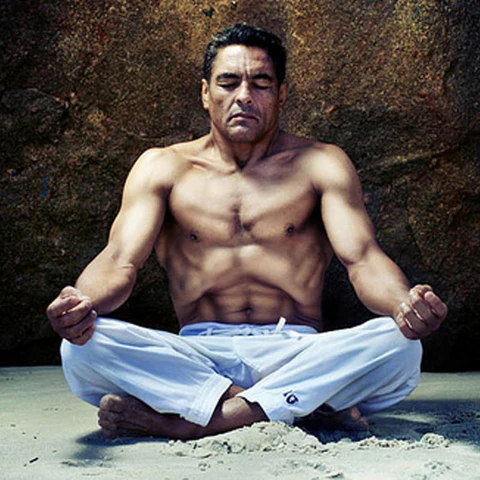Stoic Philosophy in BJJ

Brazilian Jiu-Jitsu (BJJ) is more than just a martial art; it’s a philosophy, a way of life that emphasizes continuous learning, self-improvement, and resilience. Interestingly, many of the principles that underpin BJJ echo the timeless wisdom found in Marcus Aurelius’ “Meditations.” This ancient Stoic text, written by the Roman Emperor himself, provides profound insights on inner peace, self-discipline, and resilience—three key areas that are remarkably relevant to the practice of BJJ. Let’s delve into these three principles and explore how they intertwine with the ethos of Brazilian Jiu-Jitsu.
Inner Peace: Finding Tranquility Amidst Chaos
In “Meditations,” Marcus Aurelius speaks extensively about the importance of finding inner peace. He encourages individuals to seek tranquility within themselves, irrespective of the chaos and turbulence of the external world. This concept of inner peace is fundamental in BJJ, where practitioners must maintain calm and composure even in the most intense and stressful situations.
During a match, a BJJ practitioner faces constant pressure and the unpredictability of an opponent’s moves. The ability to remain calm and think clearly under such conditions is crucial. This inner peace allows a practitioner to respond effectively rather than react impulsively, much like the Stoic ideal of maintaining equanimity in the face of adversity. The controlled, deliberate movements in BJJ mirror the Stoic practice of mindful action, emphasizing the importance of staying present and centered.
Moreover, the meditative aspect of BJJ, where one becomes fully absorbed in the flow of techniques and movements, fosters a sense of tranquility. This mirrors the Stoic practice of focusing on the present moment and finding peace within oneself. The mat becomes a place where practitioners can clear their minds, leaving the worries of the outside world behind, and fully engage in the practice. This state of flow and mindfulness is a direct application of Aurelius’ teachings on inner peace.
Self-Discipline: Mastery Over Impulses
Self-discipline is another core theme in “Meditations,” where Aurelius advocates for mastery over one’s impulses and desires. This Stoic principle is vividly reflected in the discipline required to excel in BJJ. From adhering to a rigorous training schedule to maintaining a healthy lifestyle, self-discipline is an integral part of a practitioner’s journey.
In BJJ, progress is often slow and requires consistent effort over time. Mastery of techniques doesn’t come overnight; it demands regular practice, perseverance, and a commitment to continual improvement. This mirrors the Stoic ideal of self-mastery, where individuals strive to control their desires and impulses in pursuit of a greater goal.
Additionally, BJJ teaches practitioners to control their emotions, particularly in challenging situations. Whether it’s dealing with the frustration of a tough training session or the pressure of a competition, BJJ practitioners learn to manage their emotions, channeling them constructively rather than allowing them to take control. This aligns with Aurelius’ advice on maintaining self-control and not being ruled by one’s emotions.
The discipline gained from BJJ extends beyond the mat, influencing various aspects of life. Practitioners often find that the self-discipline developed through training helps them in their personal and professional lives, allowing them to approach challenges with a calm, focused mindset. This holistic application of discipline is a testament to the Stoic philosophy of self-improvement and mastery over one’s actions.
Resilience: Embracing Adversity
Resilience, the ability to withstand and bounce back from adversity, is a central theme in both “Meditations” and BJJ. Marcus Aurelius encourages embracing challenges and viewing them as opportunities for growth. This Stoic resilience is mirrored in the physical and mental toughness developed through BJJ.
In BJJ, practitioners constantly face physical challenges, from intense sparring sessions to the inevitable defeats in competition. Each challenge is an opportunity to learn and grow. The process of getting submitted, understanding the mistake, and then working to improve reflects Aurelius’ idea of viewing setbacks as valuable lessons. This resilience is built through repeated exposure to difficult situations and the determination to keep pushing forward.
Moreover, BJJ teaches the importance of perseverance. The journey to black belt is long and arduous, often spanning over a decade. It requires unwavering dedication and the ability to overcome numerous obstacles along the way. This long-term commitment and the resilience to keep moving forward despite setbacks embody the Stoic principle of enduring hardship with a positive and proactive mindset.
The mental resilience gained from BJJ is equally significant. Practitioners learn to handle pressure, manage stress, and maintain focus in high-stakes situations. This mental fortitude is a direct application of Stoic resilience, where the mind remains steadfast and composed regardless of external circumstances.

The teachings of Marcus Aurelius in “Meditations” resonate deeply with the principles of Brazilian Jiu-Jitsu. Both philosophies emphasize the importance of inner peace, self-discipline, and resilience in the face of adversity. By integrating these Stoic principles into their practice, BJJ practitioners not only enhance their skills on the mat but also cultivate a mindset that enables them to navigate the complexities of life with grace and strength. Through the lens of Aurelius’ wisdom, Brazilian Jiu-Jitsu becomes more than just a martial art; it transforms into a profound journey of self-discovery and personal growth.
Link to book – https://a.co/d/d9gSSH3




